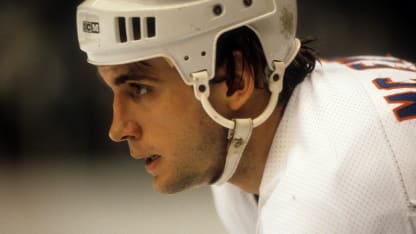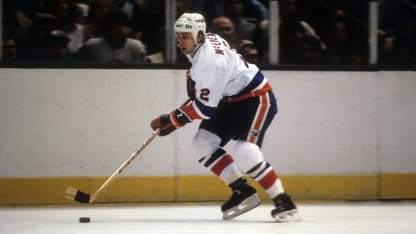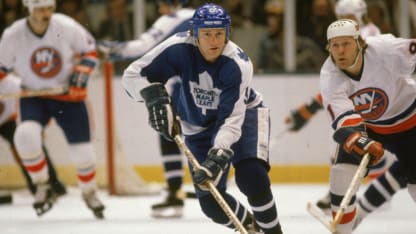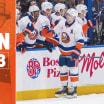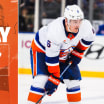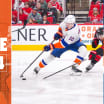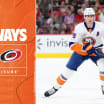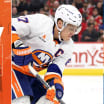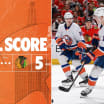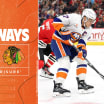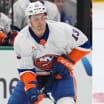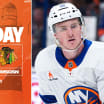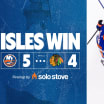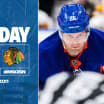New York's opening round opponent would be Toronto. In those days, a best-of-five tourney was employed with the first game slated for Nassau Coliseum. Some observers viewed it as a Grudge Series.
"We haven't forgotten that they beat us in '78," said Potvin, "but Toronto isn't the same team and neither are we; frankly we're a lot better."
The Maple Leafs, who upset the Isles in overtime of the seventh game, three years earlier, had traded their pesky forward Tiger Williams who had made a habit of tormenting Mike Bossy. That in and of itself was a break.
"As difficult as the climb to the first Cup had been," wrote Barry Wilner in his book, The New York Islanders -- Count Down to a Dynasty, "as strewn with pitfalls and pratfalls, the charge to the second was just the opposite."
"Bring on Toronto" was echoed across the Island and -- here it was -- a new post-season underway -- Game One, Toronto vs. New York.
Billy Carroll, who quickly was distinguishing himself as a quality defensive forward and penalty-killer, opened the tournament's scoring, soon followed by a Clark Gillies' tally. The Visitors got one back and that was it for Toronto.
The Nassaumen tallied five consecutive goals and skated off with a 9-2 victory. In the second game -- also in Uniondale -- Toronto limited the defending Champs to five goals but only could get one in for themselves.
"By this time," wrote Wilner, "the series had become a mismatch and it wasn't going to change at Maple Leaf Gardens either."
The three-game sweep ended in Toronto; 6-1, for Arbour's artillery, led by Bossy and his trust center, Bryan Trottier. Bossy had four goals and six assists for his work.
"Boss and Trots work so well together," said teammate John Tonelli who occasionally played left wing on the line. "They create so many chances for themselves, that the left wing on the line is bound to score. Anybody can play there."
Another left wing, Bob Bourne, added: "They read each other better than normal players can. They know exactly what the other is doing. It's because they have so much talent. They're far above everyone else."
Whether the Islanders would be "far above everyone else" in their continued quest for a second Stanley Cup remained to be seen.
All agreed that the second round foe should not be taken for granted. The Wayne Gretzky-led Edmonton Oilers had become a threatening team and not merely because of The Great One alone.
Names such as Mark Messier, Glenn Anderson, Paul Coffey and Kevin Lowe already had become NHL icons, if not champions.
"We're ready for them," asserted Potvin. "We're working hard for that second Cup!"
